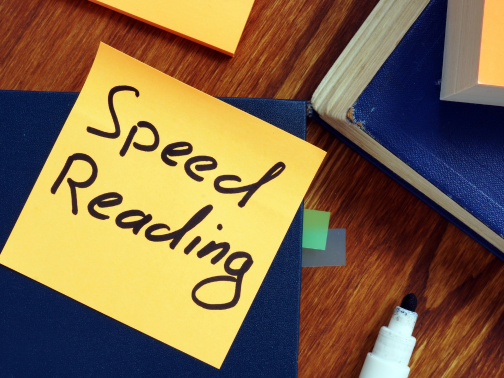Contents
Toggle
Meet David De’ Ath, co-founder, editor, and writer at Wonderful World English. With his extensive background as an English teacher, David provides valuable insights and practical tips on ESL for students and teachers alike.
Being able to read English is a massive part of learning the language.
The ability to read English words can open up a world of benefits for all learners.
From improving language proficiency to a deeper understanding of written works, hundreds of millions of learners worldwide emphasize improving their English reading ability.
Whether it is for a child in school or an adult looking to improve their English reading, there are several effective ways in which a learner can read English words.
Some great tips on reading English words include working to build a larger vocabulary and studying the building blocks of written words. Understanding the English alphabet and phonetic sounds is essential to reading and pronouncing words accurately, and developing a consistent reading routine will help learners achieve their goals sooner.
Reading can expand the mind and expose us to amazing new perspectives and ideas, broadening our horizons and allowing us to grow as individuals.
A better reader could also lead to better performance in academia, the workplace, and daily life.
I am an experienced English teacher of several years and have seen many students improve their reading ability.
This guide will explore helpful tips to help anyone start reading English words more effectively.
Whether this is for you or someone, you are trying to help, following these steps will lead to better comprehension and pronunciation of English writing.
Let’s jump in!

Reading English Words
As noted above, the ability to read well can greatly contribute to a person’s development in school or at work.
In today’s globalized world, the ability to communicate well is crucial, and as the world’s lingua franca, written English is everywhere.
Whether learning English as a second language or looking to improve reading as a native, remember to be patient and understand that progress takes time.
Breaking down words and sentences into smaller chunks and digesting them one step at a time will help significantly.
Below are ten steps that a learner can apply to improve their ability to read English words:
1. Build Vocabulary
The first step on this list in reading English words is to build vocabulary.
To read more effectively, it is important for learners first to know and recognize the words.
By first learning commonly used words and expanding from there, a learner will be sure to see an improvement in their reading ability.
This can be done using dictionaries, flashcards, and vocabulary apps to enhance word knowledge.
Additionally, habitually incorporate new words into daily conversations and writing to reinforce understanding.

2. Understand Phonetics
This step is crucial in helping us pronounce words, especially if they are unfamiliar.
It is important to become familiar with the sounds associated with the letters of the alphabet and certain combinations of these letters.
This can be done by doing phonetic exercises and using available tools effectively.
Knowing phonetics will allow readers to understand words with more confidence.
Check out the guide below to learn English phonetics.
Related Article: How to Learn English Phonetics – Full Guide
3. Understand Root Words
Another huge aspect of reading English is found in its word roots.
This means learning common prefixes and suffixes.
For example, putting the prefix ‘un’ before the word ‘common’ changes the meaning.
By recognizing word roots, we can make educated guesses about the meanings of unfamiliar words.
We have included a table from our How to Read Big Words in English guide that includes some of the most commonly used root words in English:
| Root Word | Meaning | Examples |
|---|---|---|
| Bio | Life | Biology, Biography, Biochemistry, Biosphere |
| Aqua | Water | Aquarium, Aqueduct, Aquamarine, Aquatic |
| Tele | Distance or communication from a distance | Telephone, Television, Telegraph, Teleportation |
| Auto | Self or automatic | Automobile, Autopilot, Autograph, Autobiography |
| Graph | Writing or drawing | Graphic, Autograph, Geography, Paragraph |
| Phon | Sound or voice | Telephone, Microphone, Symphony, Phonetics |
| Morph | Shape or form | Metamorphosis, Amorphous, Morphing, Morphological |
| Chrono | Time | Chronology, Chronic, Synchronize, Chronograph |
| Voc | Voice or calling | Vocal, Vocation, Advocate, Evoke |
| Ject | Throwing or projecting | Eject, Reject, Inject, Projector |
4. Reading Strategies
Including a useful reading strategy for anyone wanting to improve their English reading is important.
Paying attention to the surrounding words and sentences can help us understand an unfamiliar word’s meanings.
Using the context can help determine a word’s definition and pronunciation.
A reading strategy can help readers comprehend texts even when encountering words they haven’t seen before.
If you are comfortable with smaller words but struggle with big words in English, check out the guide below!
Related Article: How to Read Big Words in English – The Guide

5. Practice Pronunciation
Being able to pronounce words correctly is vital to good communication.
A great way to improve pronunciation is to practice often.
English learners should spend time listening to native speakers and imitating how they speak.
There are plenty of great resources available online that can improve pronunciation.
From taking classes to regularly using apps, practicing often will improve reading fluency.
Check out the video below for a useful lesson to practice pronunciation through reading:
6. Comprehension Skills
To be able to read English words with greater success, honing the ability to comprehend will be vital.
Apply techniques such as highlighting unfamiliar words when reading and learning their meaning.
Summarize paragraphs and reflect on the text, ask yourself questions, and analyze the structure of the words and sentences.
These strategies improve your understanding and retention of the material you read.
7. Improve Reading Speed
Working on our reading speed can be very beneficial, especially when dealing with a large amount of information.
Practice techniques like skimming and scanning text.
You can skim the text to get an overview and scan for key information.
With practice, your reading speed will enhance, and your ability to read English will be taken to the next level.
The book Limitless by Jim Kwik covers speed reading in some depth, and I found it to be very helpful in helping me improve my reading speed.

8. Consume More Material
Learners can expose themselves to different topics, genres, and writing styles by absorbing different forms of literature.
From newspapers, articles, and magazines to books and novels, we can learn and take inspiration from endless great forms of writing.
Try experimenting with these different forms of writing and see what interests you most.
Doing this will keep learners engaged and motivated to keep reading.
This can be very effective for young learners.
Check out the guide below for some great tips on how to improve a child’s reading skills.
Related Article: How to Improve Reading Skills of a Child – Full Guide
9. Use Technology
Much like number 8, plenty of great digital material is available for learners to utilize.
E-books, audiobooks, YouTube videos, and learning apps, to name a few!
While reading online content, use tools like dictionary apps or browser extensions for instant word definitions.
Remember that technology is a very effective tool but should not be the only form of learning.

10. Developing a Reading Routine
When it comes to improving our reading skills, consistency is key.
Be sure to set aside time each day to dedicate yourself to reading practice.
Build a reading routine that suits your schedule and preferences.
Make reading a regular part of your daily routine, whether in the morning, during your lunch break, or before bed.
Over time, this healthy habit will significantly contribute to your progress.

Conclusion
In conclusion, the ability to read in English is a precious skill that can empower us to communicate more effectively and explore a vast world of information.
You can enhance your reading abilities by building your vocabulary, learning phonetics, and practicing regularly.
Reading different written material and finding what interests you is a great way to keep yourself interested and engaged.
Remember to use the great wealth of resources available online to help you on your journey to reading English more effectively.
Reading opens doors to new experiences and experiences and allows us to grow as people.
We hope this guide has given you some insights into how to read English words.
All the best!
Image Attribution: All images licensed via canva.com





